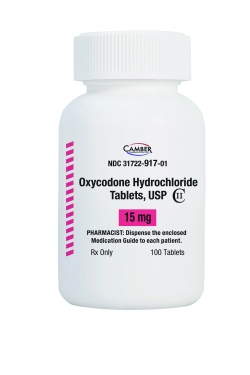Finest Practices for Buying Oxycodone Online from Trusted Suppliers
Finest Practices for Buying Oxycodone Online from Trusted Suppliers
Blog Article
Understanding Into the Legitimate Uses Linked With Oxycodone Intake
From giving alleviation to cancer cells individuals battling agonizing discomfort to helping in post-surgical healing, the applications of oxycodone are impactful and significant. Recognizing the nuanced scenarios in which this medication is suitably used sheds light on the detailed equilibrium between its benefits and threats, prompting a much deeper expedition right into the world of pharmaceutical interventions in taking care of extreme pain.
Pain Administration in Cancer Cells Sufferers
Discomfort monitoring in cancer cells individuals is a crucial facet of their general care and therapy programs. Individuals battling cancer cells commonly experience varying levels of pain, which can significantly impact their top quality of life. Efficient discomfort monitoring not just alleviates physical discomfort yet additionally deals with the emotional and psychological toll that persistent pain can take on people.
Cancer cells pain can come from the condition itself, such as lump growth pushing on body organs or nerves, or as a negative effects of treatments like surgery, chemotherapy, or radiation - Buy Oxycodone online. It is essential that doctor use a multidisciplinary strategy to pain monitoring in cancer patients, tailoring treatments to address the particular kind and source of discomfort experienced by each individual
Therapy options may consist of pharmacological treatments like opioids, non-opioid anesthetics, and adjuvant medications, in addition to non-pharmacological approaches such as physical treatment, acupuncture, and cognitive-behavioral treatment. The objective of discomfort monitoring in cancer clients is not just to minimize discomfort degrees but likewise to improve general operating and lifestyle during the program of their illness.
Post-Surgical Pain Alleviation
Following medical procedures, reliable monitoring of discomfort and advertising recuperation are essential aspects of client care. Post-surgical pain relief plays an important function in ensuring clients' comfort and facilitating their healing process. Oxycodone, a potent opioid analgesic, is commonly suggested for managing modest to extreme pain adhering to surgical treatment.
Post-operative pain can impede a patient's ability to move, take a breath deeply, and take part in crucial activities for recovery. Oxycodone helps ease this pain by binding to opioid receptors in the mind and spine, minimizing the understanding of discomfort. By supplying reliable discomfort relief, oxycodone enables patients to join physical treatment, enhance their wheelchair, and protect against difficulties related to insufficient discomfort control.

Persistent Pain Management
Effective management of chronic pain is important for enhancing individuals' top quality of life and capability. Persistent pain, lasting for weeks to years, can significantly influence a person's daily activities, psychological health, and total health. Oxycodone, a powerful opioid discomfort medication, is generally suggested to assist handle persistent discomfort problems such you could try these out as joint inflammation, fibromyalgia, and lower pain in the back when other treatments have proven inefficient.
When made use of properly and under close medical guidance, oxycodone can offer much-needed alleviation to individuals experiencing from persistent pain. By targeting the main nerve system to change the assumption of discomfort, oxycodone can help individuals restore wheelchair, participate in physical treatment, and take part in tasks they appreciate. This, subsequently, can cause improved mood, better sleep, and enhanced overall capability.
It is crucial for medical care suppliers to very carefully examine each person's pain degree, medical history, and threat aspects before suggesting oxycodone for chronic discomfort administration. Routine surveillance and adjustments to the treatment plan are essential to guarantee the drug's efficiency while lessening the threat of dependence or abuse.
Palliative Care Use
When thinking about the wider spectrum of healthcare past persistent discomfort monitoring, the application of oxycodone in palliative treatment settings becomes a topic of considerable relevance. Palliative care aims to enhance the high quality of life for individuals encountering severe diseases by resolving their physical, psychological, and spiritual needs. Oxycodone, a powerful opioid analgesic, plays an important function in palliative care by efficiently managing extreme pain that usually comes with innovative diseases such as cancer, end-stage organ failing, or sophisticated neurological problems.
In palliative care, oxycodone is recommended deliberately and under close supervision to relieve stressful signs, promote comfort, and improve overall health. The medicine is tailored to every patient's particular needs, guaranteeing ideal pain relief while view minimizing potential negative effects. Healthcare service providers in palliative care settings work very closely with people and their families to establish individualized treatment strategies that focus on symptom management and psychological assistance.
Severe Injury Discomfort Control

Nonetheless, it is vital to highlight the significance of utilizing oxycodone properly and sticking strictly to prescribed does to minimize the threat of dependency, tolerance, and potential damaging impacts. Doctor must very closely keep an eye on clients getting oxycodone for extreme injury discomfort control to ensure its efficacy hurting administration while decreasing the possibility of abuse or addiction. By incorporating oxycodone right into an extensive discomfort administration strategy customized to the specific needs of the person, healthcare experts can enhance therapy outcomes and help with a smoother healing procedure from severe injuries.
Conclusion
In conclusion, oxycodone works as an important tool in discomfort administration for various medical problems such as cancer, post-surgical healing, chronic discomfort, palliative treatment, and extreme injuries - Buy Oxycodone online. Its efficiency in supplying relief to individuals experiencing extreme discomfort has been well-documented. When made use of suitably and under clinical supervision, oxycodone can considerably boost the high quality of life for people struggling with disabling pain
By offering efficient discomfort relief, oxycodone enables people to take part in physical treatment, improve their mobility, and avoid complications connected with poor discomfort control.
Oxycodone, a potent opioid pain medication, is commonly suggested to help manage chronic pain conditions such as arthritis, fibromyalgia, and reduced back discomfort when various other treatments have actually proven inadequate.
Oxycodone, a powerful opioid analgesic, is reliable in giving alleviation from extreme pain by acting on the central anxious system to change the perception of discomfort. Medical care companies should very closely check people obtaining oxycodone for severe injury pain control to guarantee its effectiveness in pain management while reducing the possibility of abuse or dependency.In conclusion, oxycodone serves as a crucial device in pain management for numerous clinical conditions such as cancer cells, post-surgical recuperation, persistent pain, palliative care, and serious injuries.
Report this page